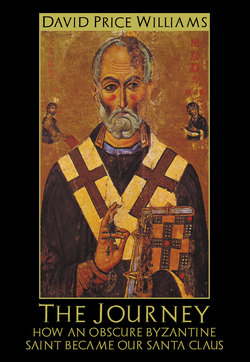Читать книгу The Journey: How an obscure Byzantine Saint became our Santa Claus - David Price Williams - Страница 44
На сайте Литреса книга снята с продажи.
Оглавлениеpart took his legions and set off to quell rebellions along the Rhine whilst Diocletian, with only the east to worry about, turned his attention again to the ever present problems of the eastern frontier in Mesopotamia and the preying ambitions of the egregious Persians again.
His military grasp of the problems of ruling such a disparate group of people was without doubt his strong point. Rome had endured the indignity of their so-styled favoured ally, Palmyra, turning coat on the arrangement, declaring independence from Rome and taking control of all the trade routes which crossed the Syrian Desert from the Euphrates River to the Great Sea. Although Aurelian had quashed that ambition and left Palmyra virtually paralyzed, Diocletian could see the sense in re-establishing good relations with Palmyra’s desert city dwellers. They were Arabs basically and certainly it seems they had no love of the Persians and their duplicitous subterfuge, so it was not difficult to bring them back under a Roman banner of friendship again.
Palmyra was once described to me as a great city. It was a thriving caravanserai on the road across the desert, but it was also a classical wonder, with long colonnaded streets, theatres and temples. It sat right in the middle of a never-ending, parched plain, but it was built around a large perennial spring surrounded by palm groves. It apparently looked very striking, as you came upon it with your caravan after several days in
THE JOURNEY
